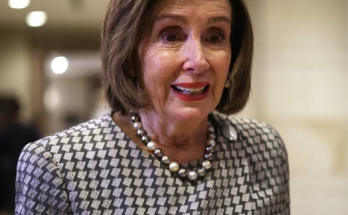🚨 ALERT: Chikungunya Virus Outbreak in China — Over 7,000 Cases Reported
A new disease outbreak in China has captured international attention as health authorities report thousands of confirmed cases of Chikungunya virus (CHIKV) in southern provinces. With more than 7,000 reported infections in the initial stages and tens of thousands as the outbreak progressed, this mosquito-borne virus has triggered swift government action, public concern, and global awareness. Experts warn that while the virus is rarely fatal, it can cause severe illness and lingering health effects, and its rapid spread underscores the growing challenges posed by vector-borne diseases in densely populated regions.
What Is Chikungunya?
Chikungunya is caused by a virus transmitted primarily by Aedes aegypti and Aedes albopictus mosquitoes. Its name, derived from the Makonde language in Africa, roughly means “that which bends up,” a reference to the intense joint pain it induces. Symptoms typically appear 3–7 days after a mosquito bite and can include:
-
Sudden high fever
-
Severe joint pain and swelling
-
Muscle pain
-
Headache and fatigue
-
Rash in some cases
Most patients recover fully within one to two weeks, but joint pain can persist for months in certain individuals. Deaths are extremely rare and generally occur in older adults or people with pre-existing conditions.
Scope of the Outbreak in China
The outbreak began in Guangdong Province, southern China, where environmental conditions favor mosquito proliferation. Reports indicate that in the initial weeks, more than 7,000 cases were confirmed, with the total number rising rapidly to over 16,000 locally transmitted cases. Foshan’s Shunde District is among the hardest-hit areas. Authorities are monitoring neighboring cities and provinces for potential spread.
The outbreak has drawn attention because chikungunya had not previously been widely established in mainland China. This means the population has little natural immunity, making the virus more likely to spread rapidly in densely populated urban areas.
Why This Outbreak Is Concerning
-
Population Vulnerability: Most people in southern China have not been previously exposed, so immunity is low.
-
Vector-Friendly Conditions: High humidity, heavy rainfall, and standing water create ideal mosquito breeding environments.
-
Urban Spread: Cities with high population density can facilitate quicker transmission.
-
Potential Endemicity: If local transmission persists, chikungunya could become an established disease in the region, requiring long-term control measures.
-
Public Health Challenge: Controlling a mosquito-borne virus requires coordinated vector control efforts, which are complex and resource-intensive.
Symptoms and Risks
Common Symptoms:
-
Sudden high fever
-
Intense joint pain
-
Muscle aches
-
Fatigue and weakness
-
Headache
-
Rash
High-Risk Groups:
-
Older adults (60+ years)
-
People with chronic medical conditions (heart disease, diabetes)
-
Infants and newborns
-
Individuals in mosquito-dense environments
Complications: Although rare, severe joint pain can last months or even years. Healthcare systems may also face strain due to the high number of outpatient visits and hospitalizations.
Government and Public Health Response
Chinese authorities have responded with aggressive measures, including:
-
Mosquito Control: Drones, insecticide spraying, and elimination of standing water.
-
Hospital Protocols: Mandatory hospitalization for certain cases to prevent further transmission.
-
Community Enforcement: Fines for households that allow mosquito breeding in flowerpots, buckets, or other containers.
-
Public Awareness: Campaigns to educate residents about mosquito avoidance, personal protective measures, and early reporting of symptoms.
-
Travel Advisories: Health agencies, including the CDC, have issued guidance for travelers to affected regions.
Preventive Measures for Individuals
People living in or traveling to affected areas should:
-
Apply mosquito repellent on exposed skin.
-
Wear long-sleeved shirts and pants, especially during peak mosquito hours.
-
Use screens or mosquito nets in homes.
-
Eliminate standing water around residences.
-
Seek medical attention promptly if symptoms appear.
These precautions are particularly important for older adults, infants, and those with pre-existing conditions.
Global Implications
While currently concentrated in southern China, the outbreak has global significance:
-
Risk of International Spread: Travelers returning from affected regions could introduce the virus to new areas.
-
Vector Expansion: Climate change is extending the geographic range of Aedes mosquitoes, increasing the risk of outbreaks worldwide.
-
Economic and Healthcare Impact: High infection numbers can affect workforce productivity, increase medical costs, and strain healthcare systems.
-
Potential for Endemic Disease: If chikungunya establishes a persistent presence, it will require ongoing surveillance and control efforts similar to dengue or Zika.
Current Outlook
As of the latest reports, the outbreak has not resulted in any confirmed deaths. Most cases are mild to moderate, and recovery is expected. Authorities continue to monitor the situation closely, emphasizing mosquito control and public education as the primary containment strategies.
Scientists and public health experts warn that vigilance is key. The outbreak highlights the ongoing threat posed by vector-borne diseases, the importance of environmental control measures, and the need for timely public health interventions to prevent localized outbreaks from becoming endemic.
Key Takeaways
-
Chikungunya is a mosquito-borne virus causing fever, joint pain, and rash.
-
Over 7,000 cases have been reported in southern China, with numbers continuing to rise.
-
The population in China is largely unexposed, increasing vulnerability.
-
Vector control, public awareness, and personal preventive measures are essential.
-
While fatalities are rare, prolonged joint pain and high infection rates can burden healthcare systems.
-
The outbreak underscores the need for global vigilance against emerging infectious diseases.
Hashtags
#ChikungunyaOutbreak #ChinaHealthAlert #MosquitoBorneDisease #PublicHealth #DiseaseOutbreak #VectorControl #GlobalHealth #HealthAlert #InfectiousDisease #PreventMosquitoBites #StaySafe #TravelAlert #HealthNews #EmergingDiseases #GuangdongOutbreak #FoshanVirus #MosquitoAwareness #HealthSafety #DiseasePrevention #VirusUpdate #ChikungunyaVirus #EpidemicAlert #GlobalHealthWatch #ProtectYourself #JointPainAwareness #MosquitoControl #ChinaVirusUpdate #DiseaseAlert #TravelHealth #EmergingVirus #OutbreakNews


